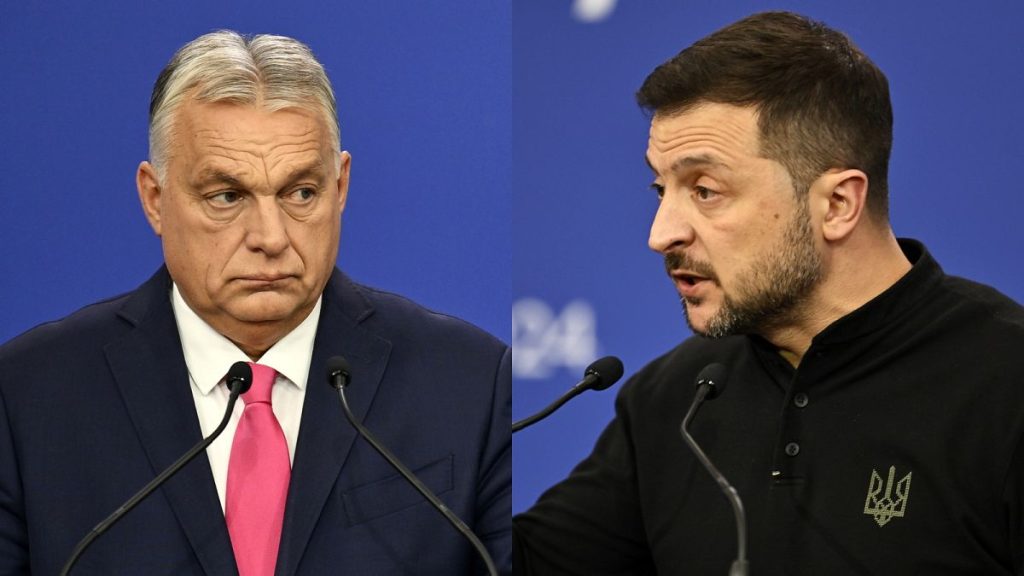Viktor Orbán recently proposed a quick ceasefire in Ukraine as a precursor to peace negotiations with Russia, causing a strong reaction from Ukrainian President, Volodymyr Zelenskyy, who dismissed it as “nonsense and disharmony.” The two leaders, with starkly different views on how to end the war in Ukraine, engaged in separate press conferences in Budapest as part of the European Political Community summit. Orbán emphasized the need for communication and negotiation which necessitates a ceasefire, referencing the election of Donald Trump as a changing factor in global politics. Despite the lack of agreement among EU leaders at the summit, Orbán suggested a shift in European attitudes towards funding the Ukrainian conflict due to the changing political landscape following the US elections.
Zelenskyy strongly criticized the idea of a fast ceasefire as ‘dangerous and irresponsible,’ stressing that such proposals overlook the harsh realities faced by those directly impacted by the war. He highlighted the futility of attempting ceasefires in the past, citing the loss of Crimea and increased conflict in 2022 following similar agreements. Zelenskyy cautioned that any ceasefire lacking security guarantees would allow Russia to further endanger Ukraine’s independence and sovereignty. He pointed out the irony of a leader opposing Ukraine’s NATO membership advocating for a ceasefire, emphasizing the need for security assurances before committing to any temporary truce.
The Ukrainian government has consistently warned against hasty ceasefire arrangements that may inadvertently benefit Russia by solidifying its control over occupied territories in Ukraine. Zelenskyy and his administration are focused on achieving the restoration of Ukraine’s territorial integrity and securing reparations from Russia as the only viable path out of the conflict. Zelenskyy criticized Orbán’s prior interactions with Putin and labeled those proposing ceasefires without understanding the realities of war as ‘armchair experts.’ He rebutted Orbán’s claim of a growing pro-peace sentiment, expressing skepticism about the prevalence of such sentiments among the public, including himself.
The contrasting views of Orbán and Zelenskyy on the issue of ceasefire and peace negotiations underscore the complexities surrounding the conflict in Ukraine and the divergent priorities of European leaders. While Orbán advocates for immediate ceasefire to facilitate dialogue, Zelenskyy insists on comprehensive security guarantees and territorial recovery as prerequisites for any peace process. The public clash between the two leaders in Budapest highlights the urgency and sensitivity of the situation, with implications for the future of Ukraine, Europe, and international relations. The sharp disagreements expressed at the summit reveal deep divisions within the EU and among European leaders regarding the best approach to resolve the ongoing conflict in Ukraine.
The rift between Orbán and Zelenskyy reflects broader disagreements within Europe regarding the funding of the war in Ukraine, the effectiveness of current sanctions against Russia, and the role of the US in mediating the conflict. Orbán’s alignment with Trump’s approach to resolving the conflict and his emphasis on revising Europe’s position in light of changing political dynamics pose challenges to the EU’s current stance on the issue. Zelenskyy’s steadfast commitment to Ukraine’s territorial integrity and insistence on security guarantees highlight the complex interplay between national interests, international diplomacy, and regional security concerns. As European leaders navigate these competing priorities and confront differing viewpoints on how to address the conflict, the future of Ukraine remains uncertain, with profound implications for the region and beyond.


